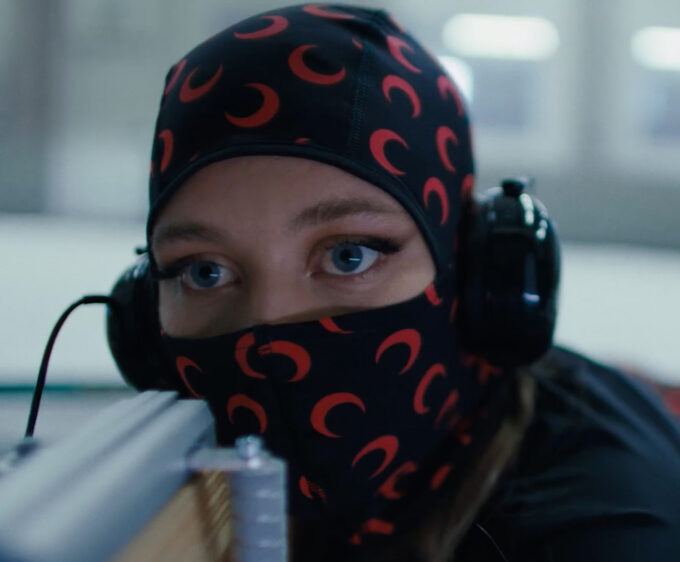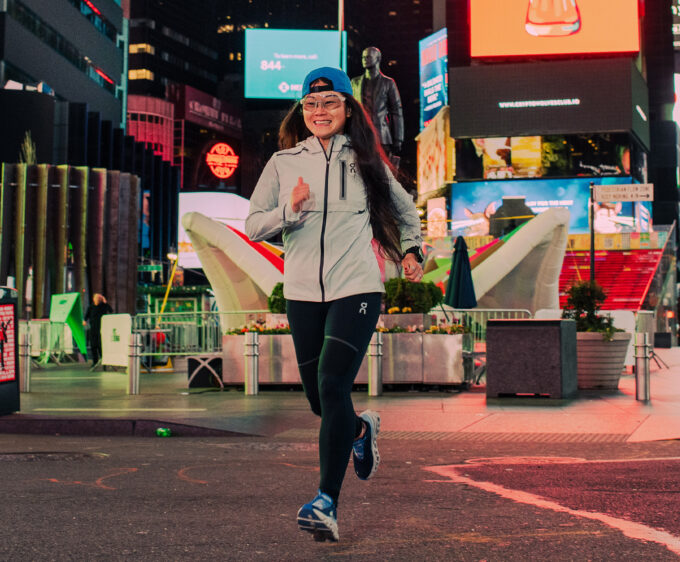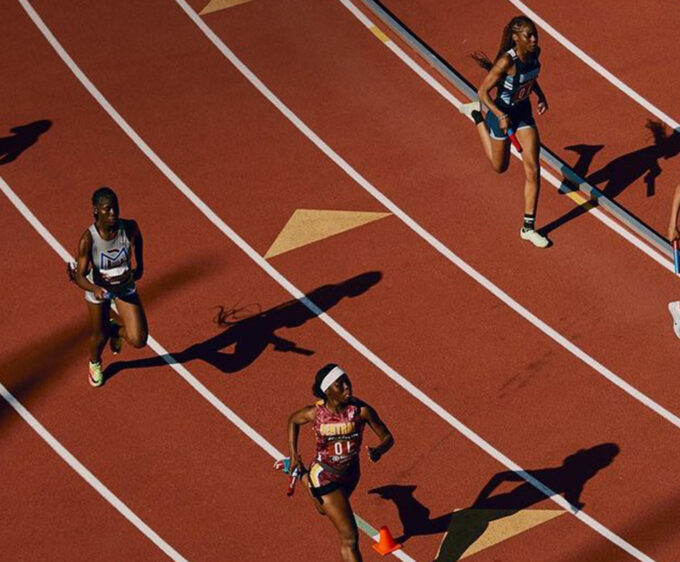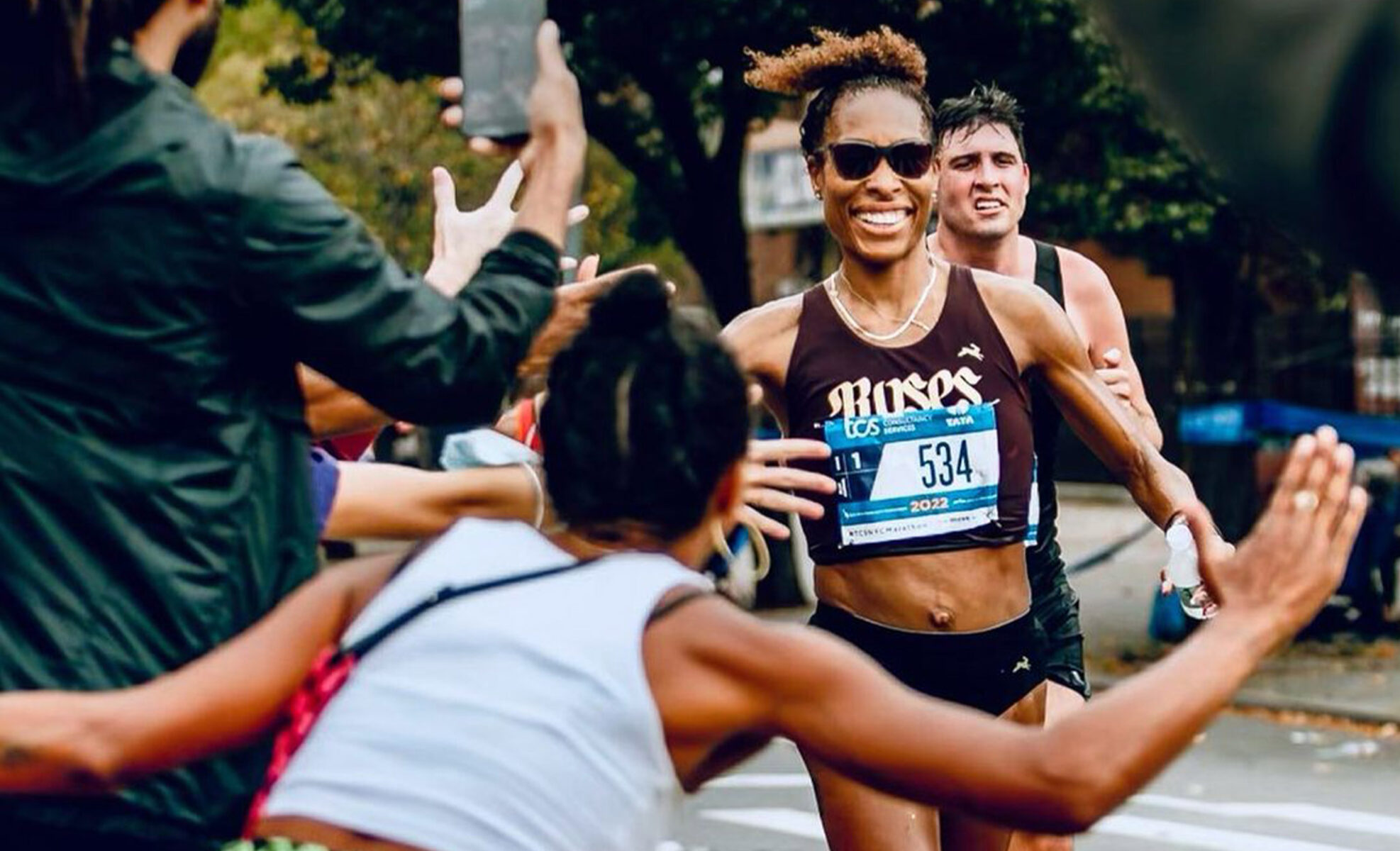
Running Rings Around New York
Only four per cent of all marathon runners manage to break three hours – Erica Stanley-Dottin is one of them. We asked her what making ‘the List’ really means – and discovered how running is nothing without community
By Alice Barraclough
Running a marathon – no matter whether it takes you six hours or three and a half – is hard. Yet it’s estimated only four per cent of all marathon runners manage to break the elusive three-hour mark – and even fewer are Black American women. Erica Stanley-Dottin came to marathon running relatively late, running her first one at the age of 35. “I’d watched the New York City Marathon my whole life – it passes by my home in Brooklyn,” she says. “I was cheering on a friend at the 2007 marathon – I’d kind of been on the journey with him and joined some of his training runs, so it was the first time I’d fully understood what the training looked like. Watching all these runners charging towards the finish line made me think ‘I could do that’.”
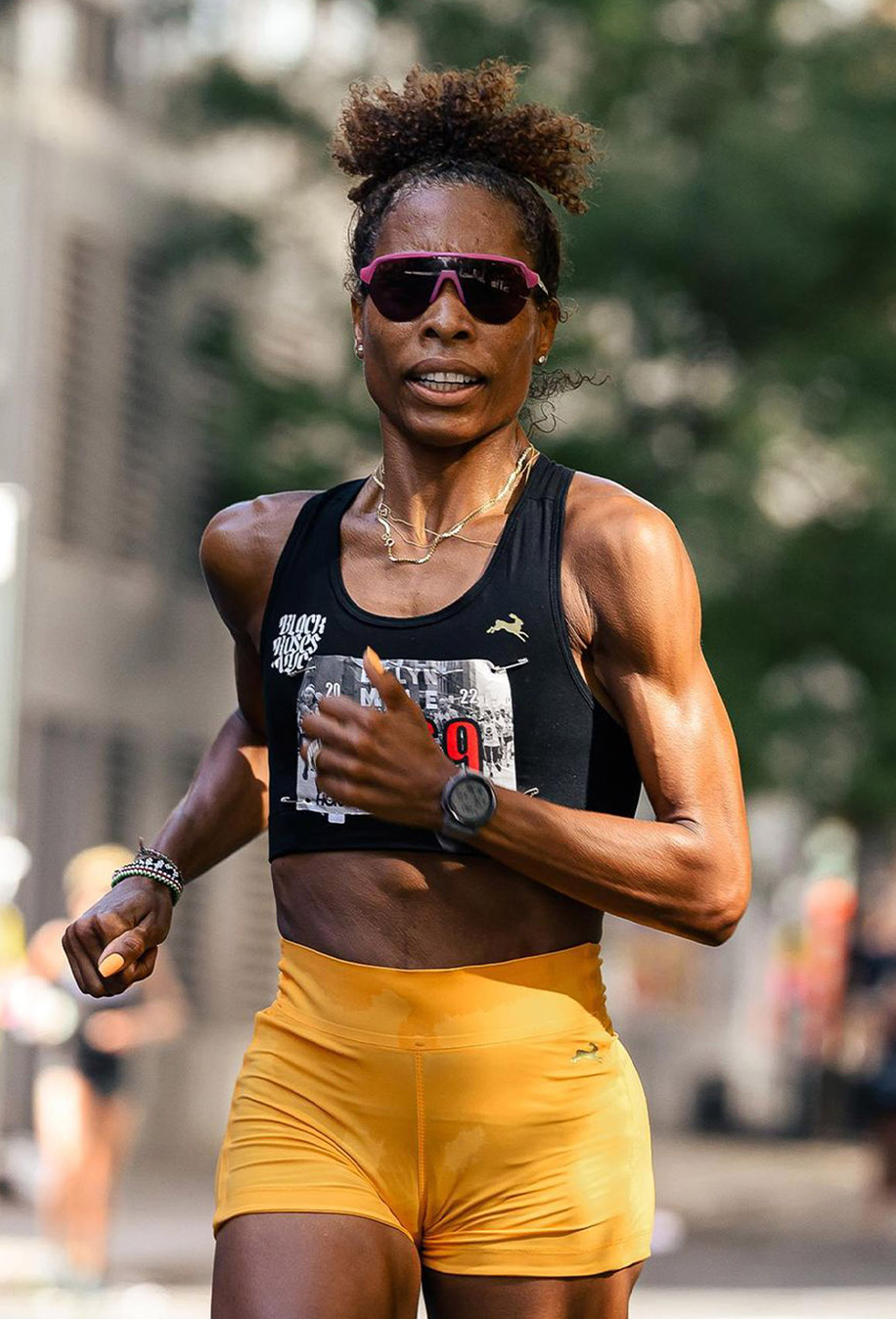
She decided to enter the following year. Her goal? To break four hours at the 2008 New York City Marathon. She missed the mark by a mere six minutes – running a 4.06 – but became hooked. Fast forward 14 years (and 10 marathons later), Erica managed to knock over an hour off her time, completing the Berlin Marathon in September 2022 in 2 hours, 52 minutes and 5 seconds, aged 48. And, perhaps more importantly, joining the ranks of 24 other Black American women to run 26.2 miles in under three hours, as tracked by the National Black Marathoners Association.
But it’s been a long old winding road to get to where she is now. After running the 2017 New York Marathon, a friend introduced her to the idea of running a ‘BQ’ – for those who don’t know, a BQ in the running world stands for running a ‘Boston Qualifying’ time. It’s the world’s oldest annual marathon and ranks as one of the world’s most prestigious road racing events. In fact, for many marathoners, running a BQ is a bucket-list goal – the ultimate achievement.
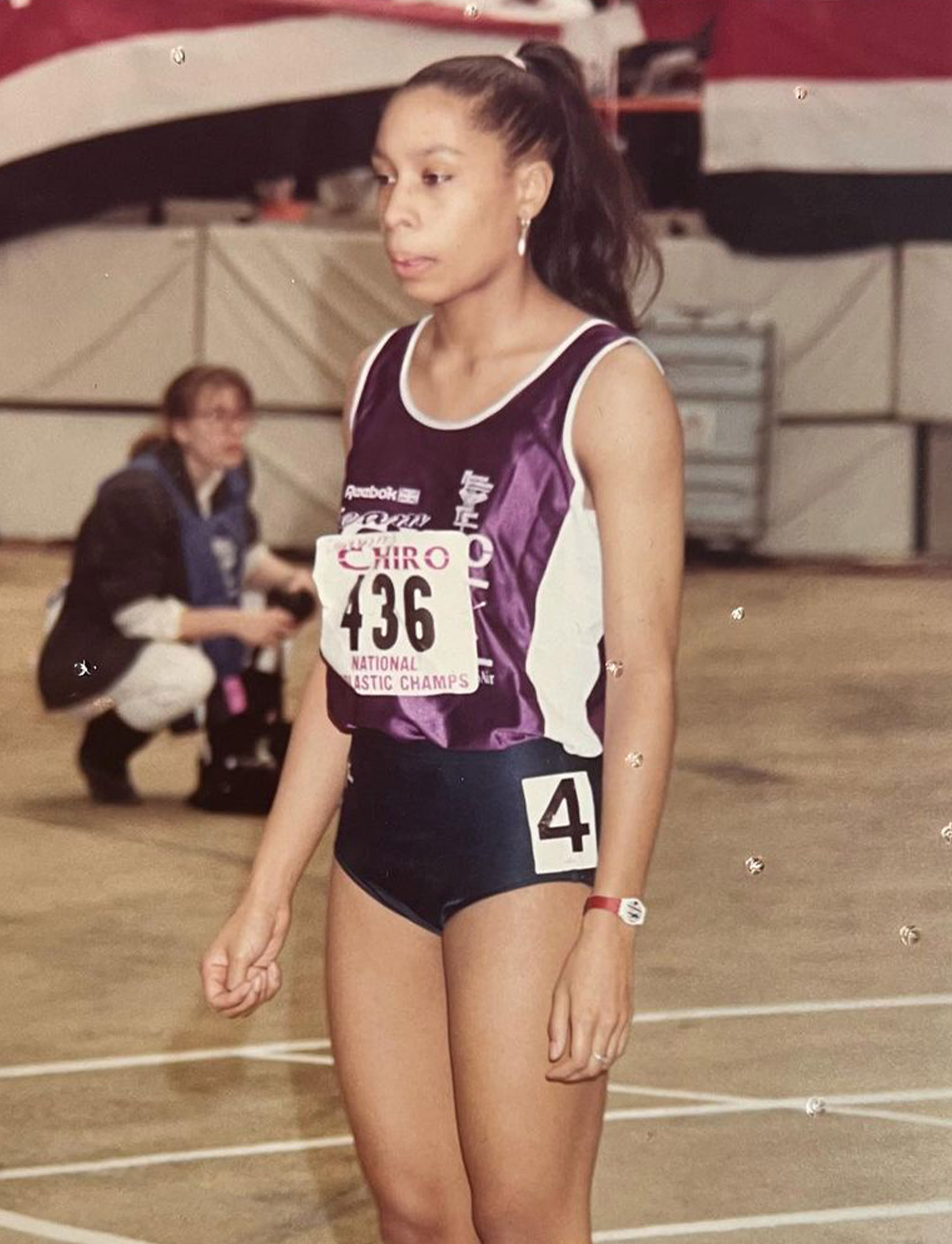
“I had no idea what a BQ was,” Erica says – but as soon as she found out it’s one of the only marathons where you have to qualify by running a certain time, her competitive edge kicked in. “I was a sprinter at Georgetown University, so although I came to long-distance running late, I’d been a ‘runner’ my whole life. That competitiveness made me curious, so I started researching BQs and how fast I’d actually have to run.” At the time, the qualifying time for her age group was 3 hours and 45 minutes. “I thought, ‘that’s interesting, I could go for that’” she says. So she signed up for the (flat and fast) 2018 New Jersey Marathon and ran a 3.44. She qualified for Boston and the fire was lit.
It was only then, 10 years after completing her first marathon, that Erica thought she better start taking running a little more seriously and decided to join the Black Roses NYC, a competitive run group coached by Knox Robinson. “I knew if I was going to run Boston, I needed to step it up. I wanted a coach and people to run with,” she says. “When I joined Black Roses, everything changed.”
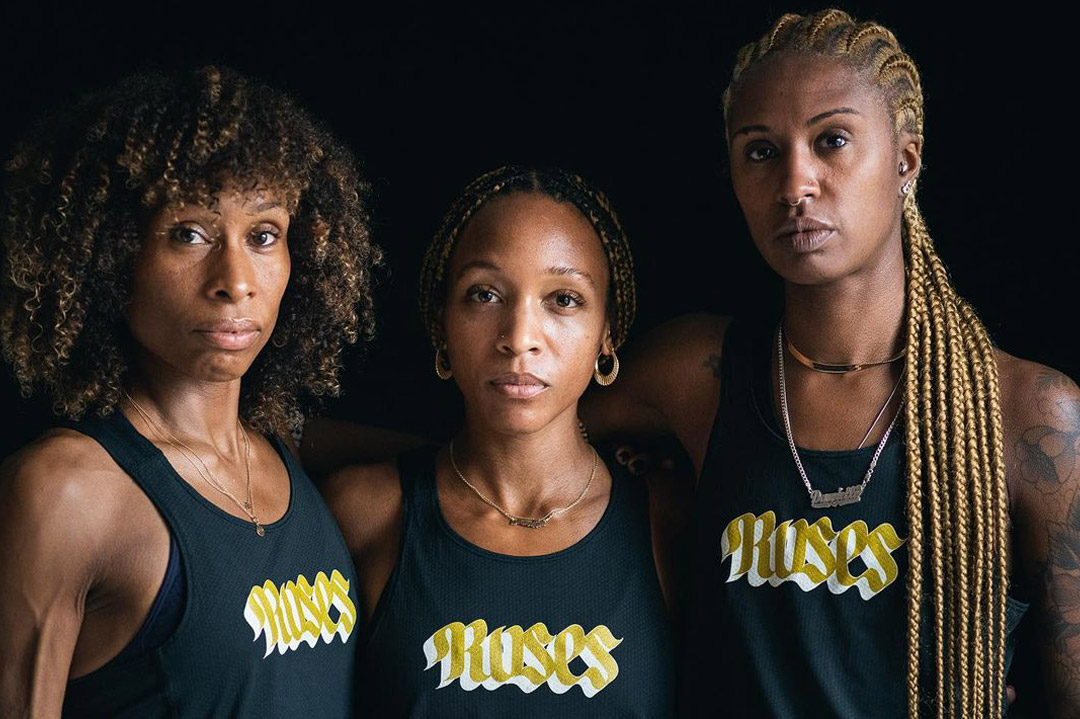
stamina
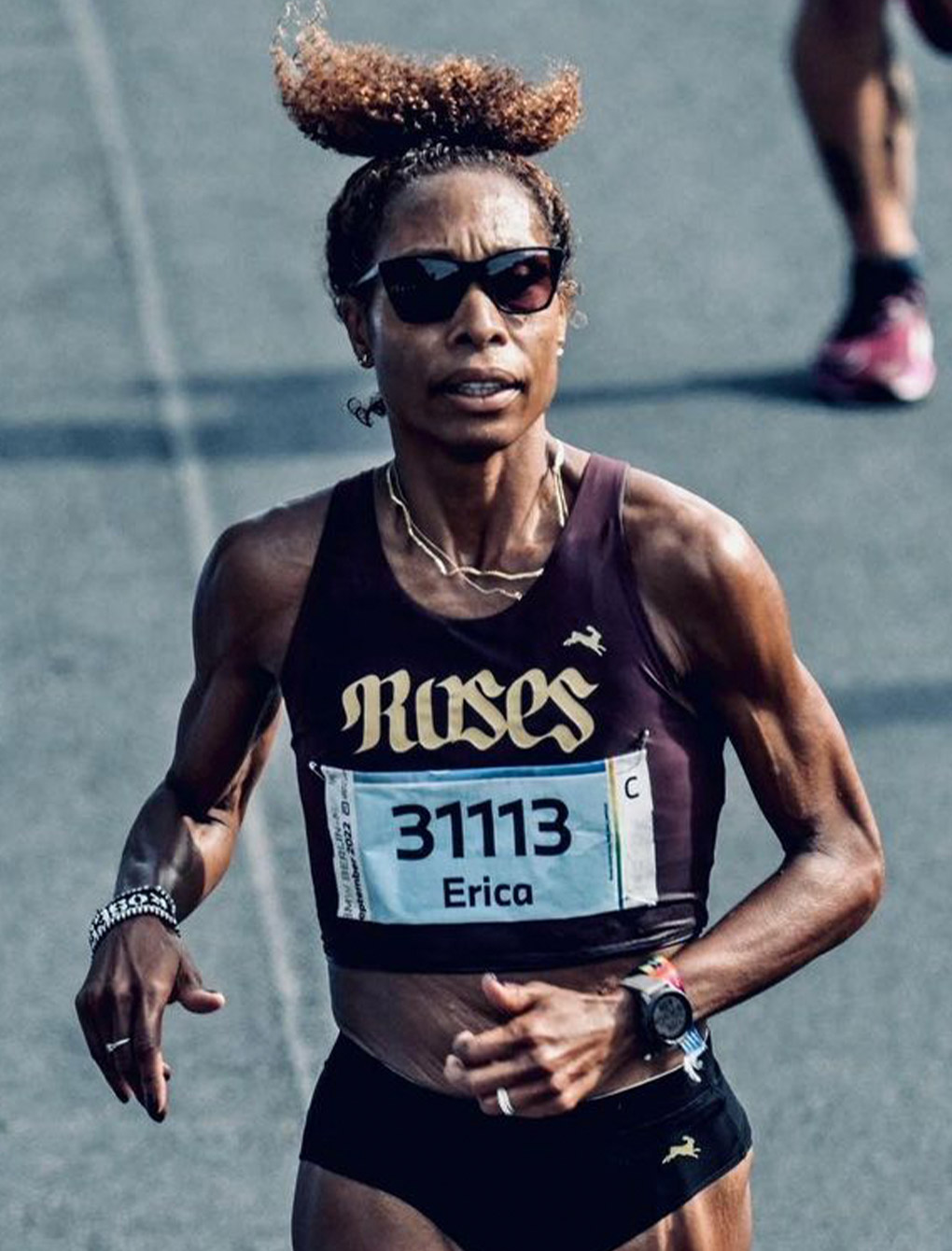
It’s fair to say there’s an element of mystery surrounding the Black Roses running group – they don’t really have a website as such, just a page with a link to their Instagram handle. “It’s a New York City, mostly Brooklyn-based crew – small, but mighty,” she explains. “What originally attracted me to the group was the beautiful writing and storytelling that the coach, Knox, was doing on his Instagram, about training. I was watching this group of Black women performing and running at this high level and I was so blown away by that. And it was right here in my city.”
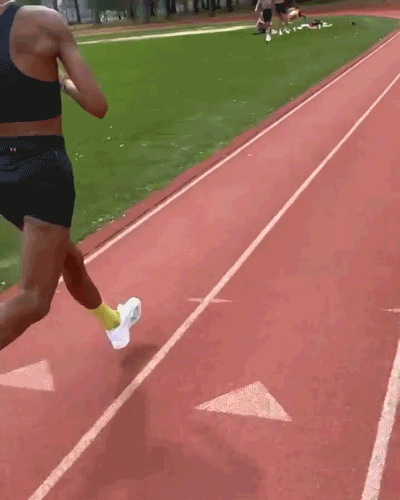
On the website ‘running crews’, where you can search for different running groups all around the world, it describes Black Roses as a club where “you won’t find any casual runnings. The sessions are intense. Even a 25k-long run can end with an extra 5k hard on the track. If you’re looking for some casual miles while on holiday, there are many great crews to join in New York. However, if you’re in the middle of a training cycle and looking to put in some work, reach out to Knox or one of the Roses members to join a weekly run.”
Erica agrees the workouts are really intense, but says it also differs from a classic athletics club in that there are no set training days. For example, most clubs might have ‘track Tuesdays’ or ‘long run Sundays’ but not the Black Roses. “It’s a small group centred around women. It feels like we’re inaccessible because we’re so small. People still ask me, but where do you guys train? And when do you guys train? We make up our own schedule. We’re flexible. I think that’s what makes us different.”
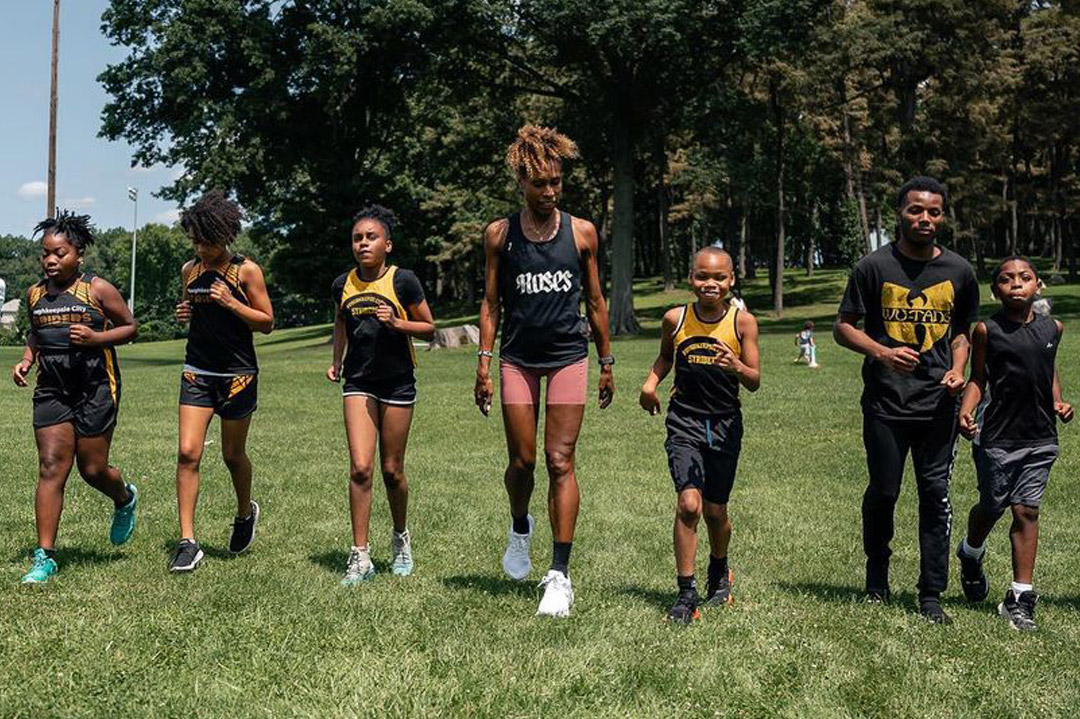
The way Erica talks about the Black Roses is like she’s talking about a close group of friends, bonded through the practice of running. It’s special. “It’s not only elevated my running, it’s elevated my life,” she tells me. “Outside of running, we all have different lives. I’m a busy mum and have a full-time job.” While they may have originally come together as “a little ragtag crew of people from different backgrounds”, now they’re a group of mates who really enjoy each other’s company.
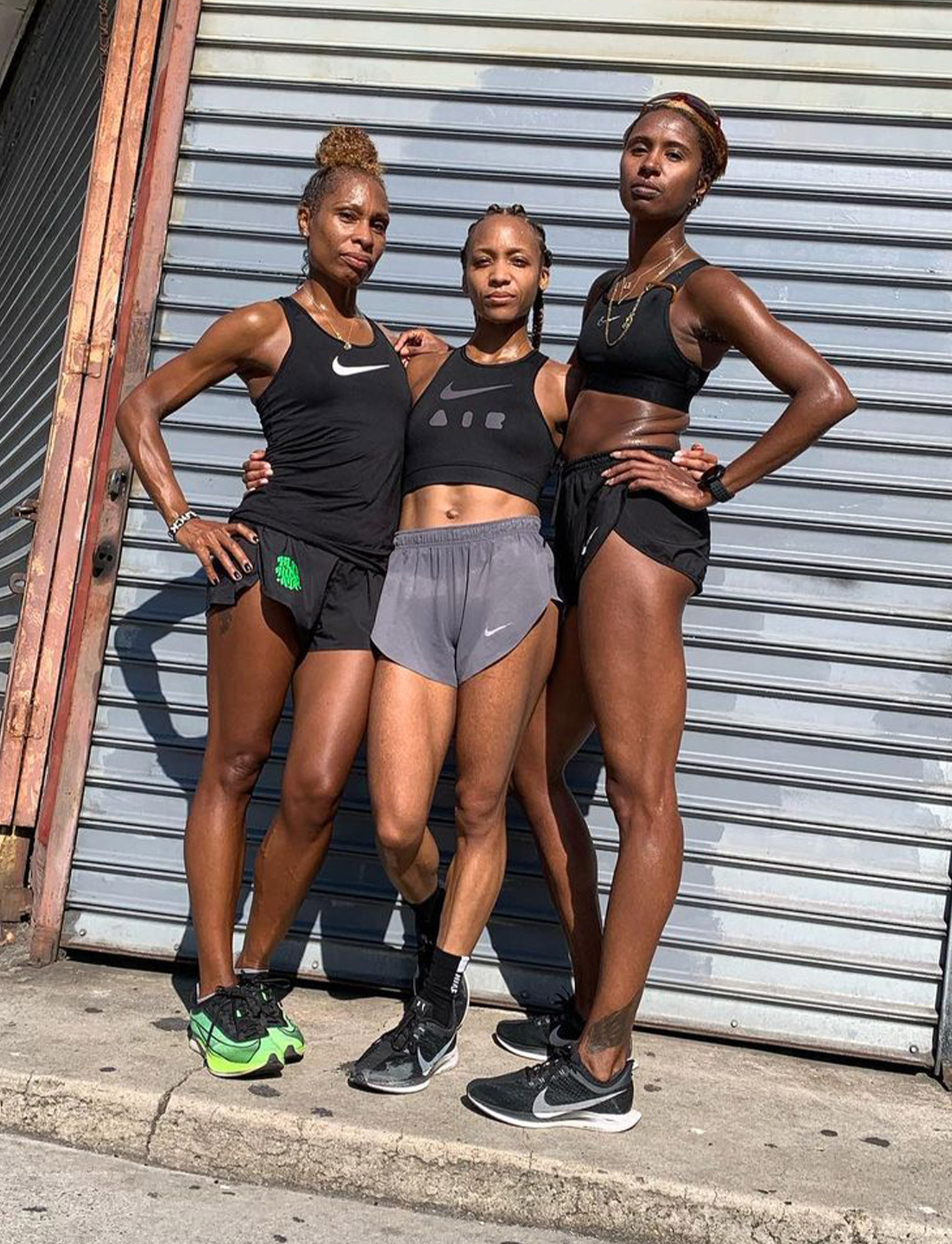
It was only after joining the Black Roses, that Erica found out about ‘the List’ – a list of names, kept by historian Gary Corbitt, of all the Black American women who have broken three hours in the marathon. “Ted Corbitt was known as the godfather of long-distance running here in New York,” she explains. “He crafted the New York City marathon route and the park loop is named after him in Central Park – he’s a legend and his son, Gary Corbitt, updates and maintains ‘the List’.”
“It wasn’t until my first year on the squad when I was having lunch with one of my teammates, that she told me, ‘at some point, everybody on this team is gonna run under three hours’. And I was like, ‘no, I just want to go 3.30 in New York.’” But then, as her times started dropping and the training stepped up, she started to wonder if maybe a sub-three was in her grasp after all. Like the majority of people in the pandemic, the global lockdown only intensified Erica’s run training. “I didn’t think I could ever run high mileage because I just thought I’d injure myself, due to my age. But I started running 70-80 mile weeks and I was fine. I was just getting fitter, my paces were getting faster and I dared myself to dream that maybe, just maybe, this was something I could actually train for and work on. That’s when it became fun.”
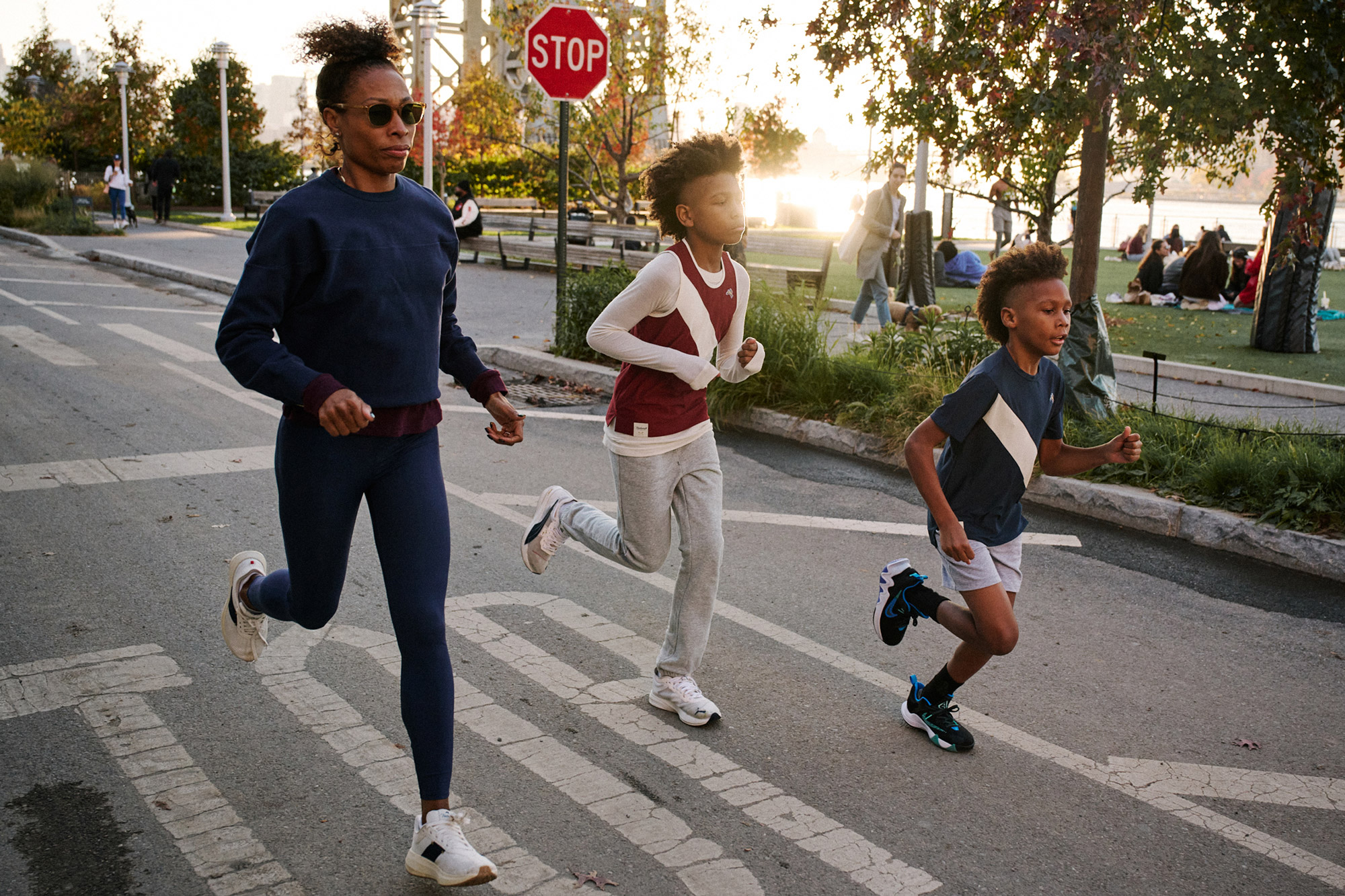
Usually, when athletes set themselves goals like these, they become obsessive. Nothing else matters. But Erica, even though she was hungry for it, also had a full-time job working as Tracksmith’s New York City community manager – a small, independent running company due to open their first London store this year – and two young kids to raise. “My sons are aged 9 and 11 and I like that they see me come home from a 20-mile run and plop down on the couch, and that’s completely normal. Seeing mum being active and doing that for myself, they’ll remember that – and I think that’s powerful,” she says. “The juggle is very real. It’s just impossible for everything to be in sync all the time – motherhood is about trying to figure out the perfect equilibrium and the sweet spots for everything.”
Even if she did have spare time on her hands to fixate on splits and times, her coach wouldn’t allow it. “We don’t typically spend a lot of time talking about race paces and times and goals,” she says. “We’re not even allowed to say the M word (marathon) during a training block – or start talking about the marathon until a couple of weeks before the race.” Instead, the focus is on training hard, then going out there and seeing what you have. “I wasn’t focused on times or anything, I was more focused on feeling confident and pushing my body like I had never before.”
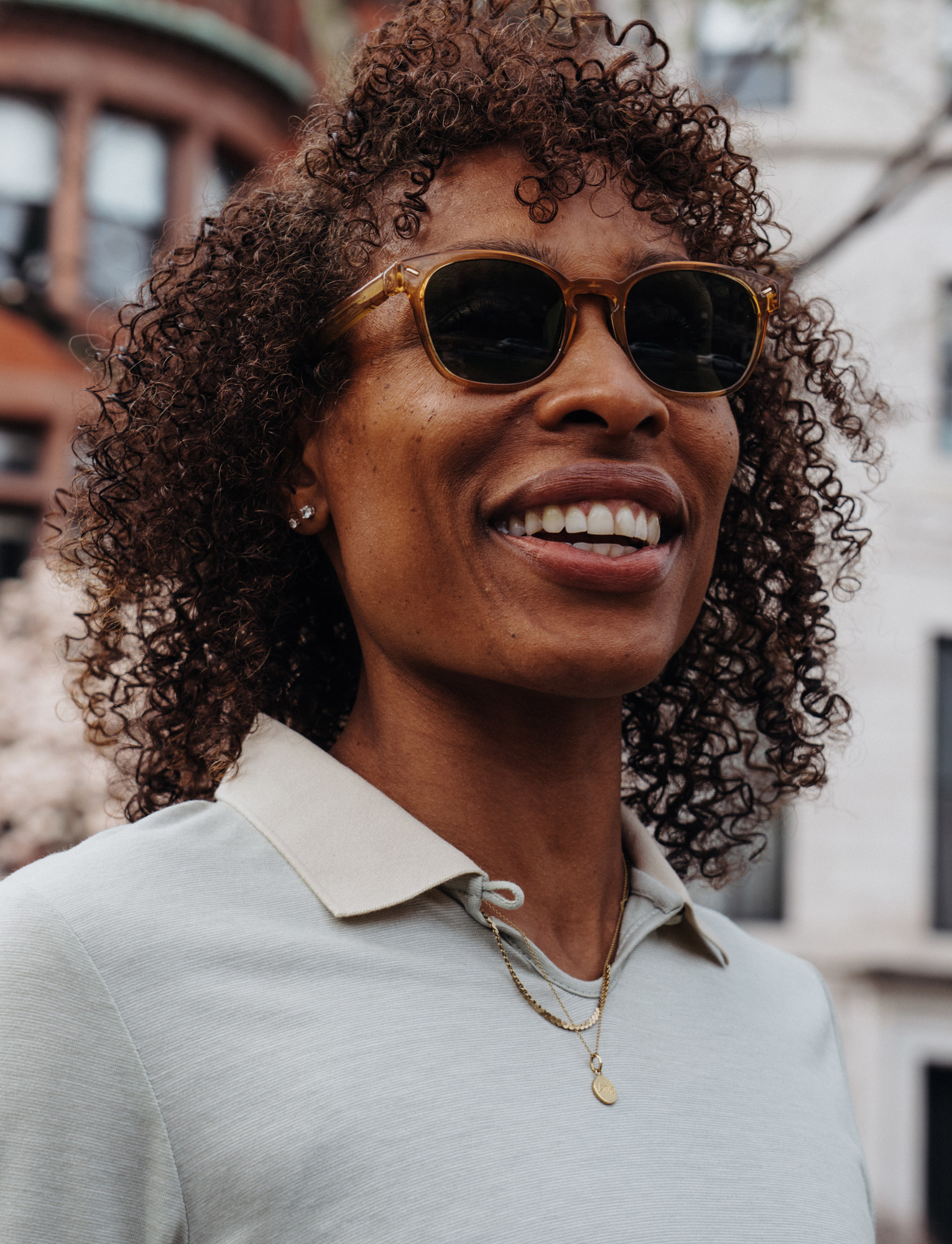
Erica aimed to break three hours at the 2021 London Marathon (she ran a 3.07) and then at the Boston Marathon 2022 (3.01) and learned the hard way that anything can happen on race day. “You could be in the best shape of your life on race day, and then suddenly – like New York this year – it’s super hot,” she says. “At London last year, my hamstring pulled around miles 18-19, so I finished the race, but I slowed down considerably. Then Boston was a lot more painful to deal with – I think I got dehydrated. I got to around miles 18-19 again and my vision started blurring – it was a wild out-of-body experience, which I’d never experienced before. I ended up finishing, and still somehow ran my fastest marathon ever. But I narrowly missed the sub-3 mark, probably from where I’d stopped a couple of times. I knew it was in me though, it was no longer a matter of ‘if’, but when.”
When she finally crossed the line at the 2022 Berlin Marathon in 2.52 she said that “everything just clicked”. There are so many variables and things you can’t control on the day (the course, the city, the weather), but, for Erica, Berlin felt like the first marathon she was “racing the whole way”. There was no waving to the crowd or smiling for the camera. “From start to finish I felt good and it just came together in a way I’ve never experienced before. I had this laser focus, just checking my watch and ticking each mile off – it actually went by really quickly, like I was just whipping through.”
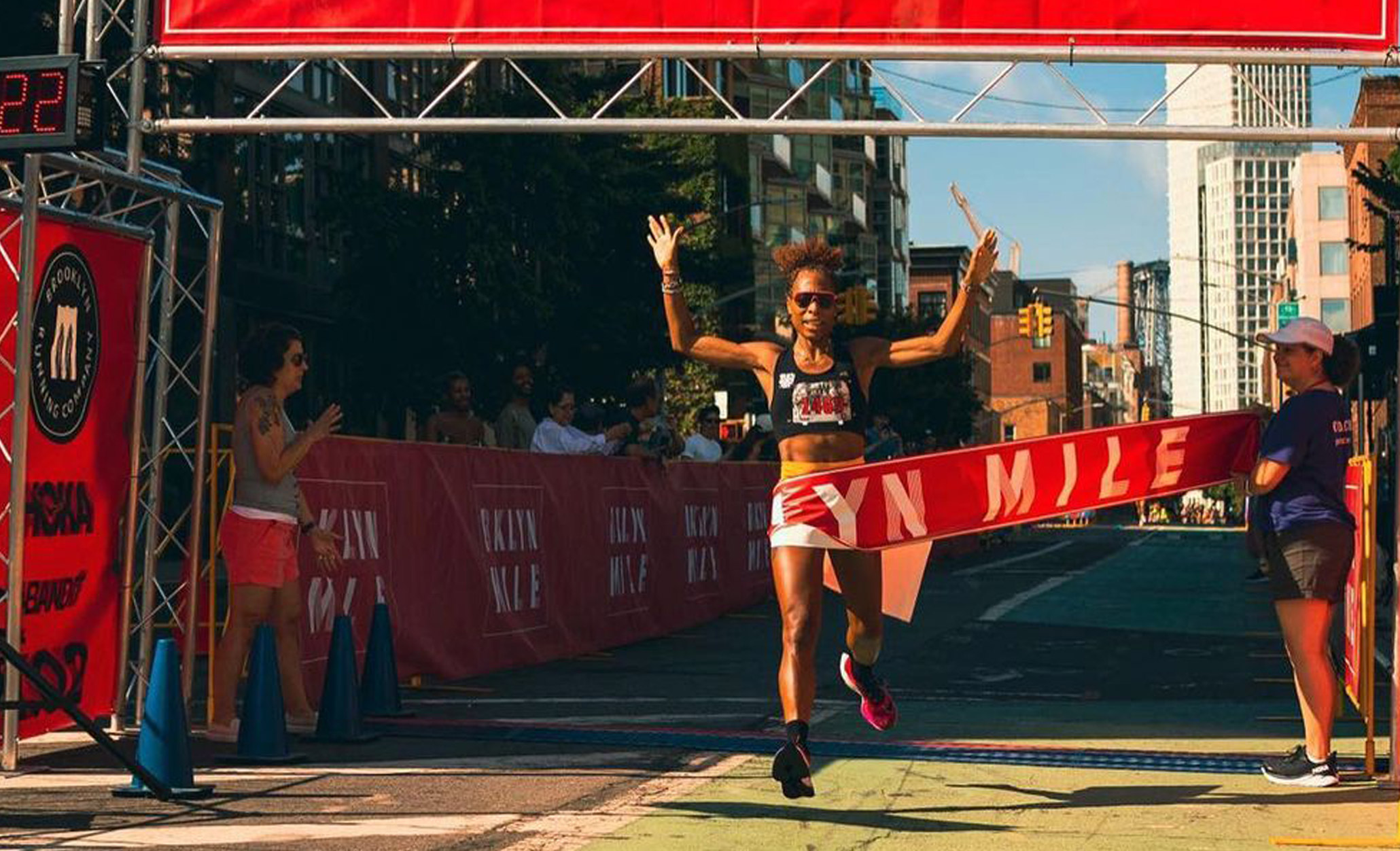
At the finish line in Berlin, her coach, Knox, was there to greet her. “We both just started crying. It was really emotional.” Erica says it’s because of the journey she’s been on with him – not just in terms of her own self-discovery but that of her community. “I love that I’m inspiring not just my kids or other women and girls of colour to run, but mothers and women in their 40s too,” she says. In fact, part of her job at Tracksmith is to create more spaces for runners to meet and train – no matter what they look like, or where they come from – managing run clubs, events, and activations. “It’s a cool job – and it’s not lost on me that my career is essentially also my hobby – but I love that everyone’s a runner, and we all get each other and the craziness that comes with marathon training.”
Erica says her life’s mission has always been about creating experiences and opportunities for others to succeed. “I want to do more community building in New York with Tracksmith,” she says. When she’s asked what does it actually mean to have a community of runners, and what does that look like, she adds, “ I want to help make an impact – not just say ‘we’re community building’ but actually put on events and create those spaces. It’s something she’s clearly learnt from being a part of the Black Roses. “Black women are never seen as performers – especially American Black women – so making ‘the List’ and creating more diverse stories is so important to me,” she says. “I never set out to inspire others, but if more people start running, and believe that they can do it because we’re here and we’re training then that’s really powerful. And guess what? I’m a mum in my 40s, and I got faster.”
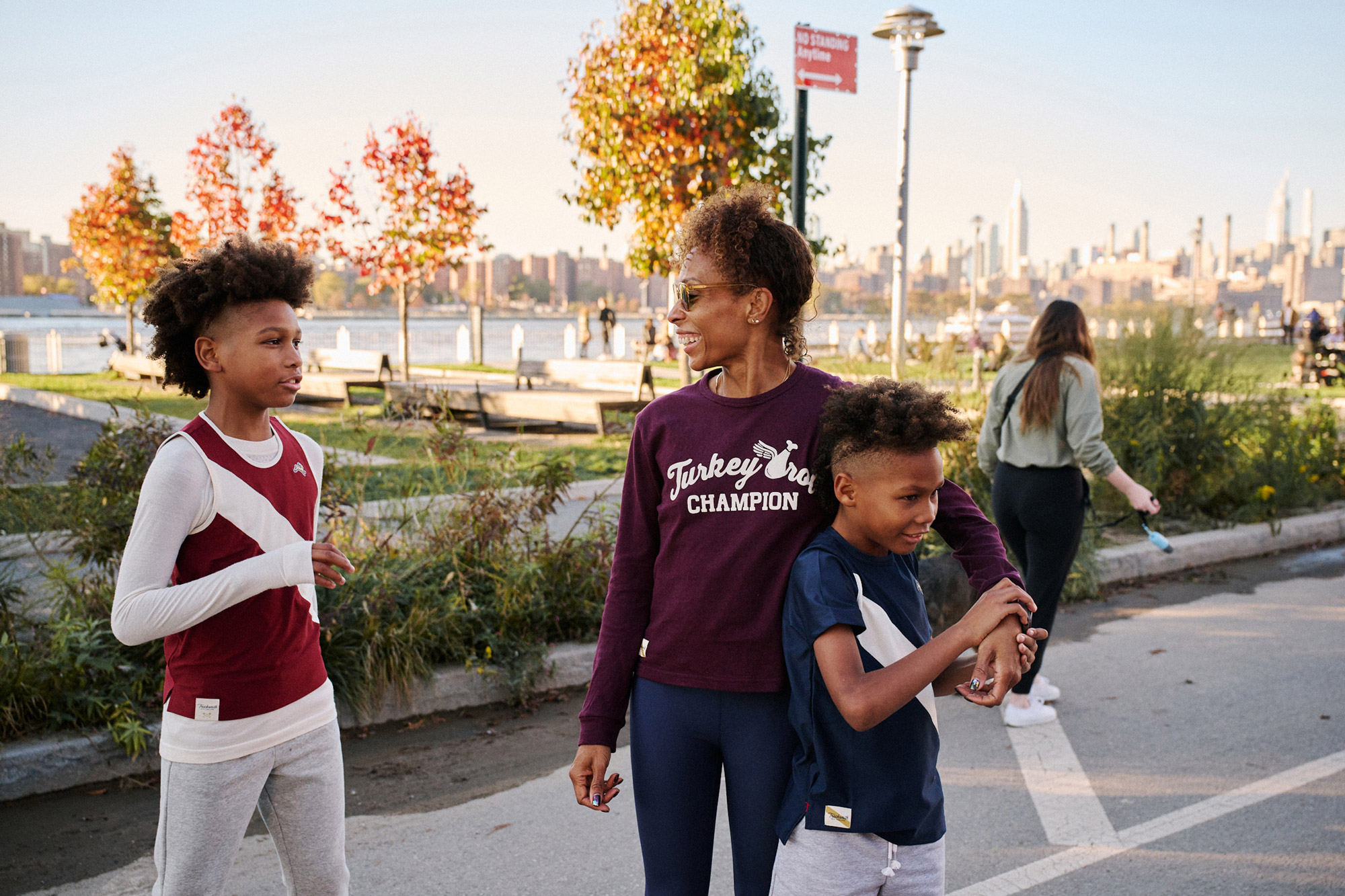
Title Image Erica running the NYC Marathon in 2022, photographed by John Le Tran
Editorial Design by this is root

